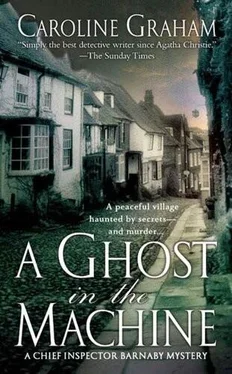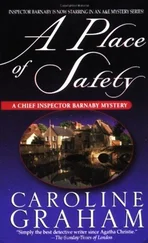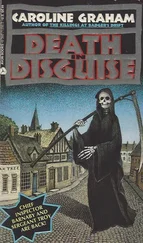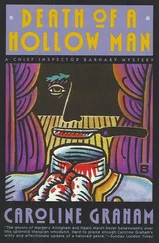Barnaby, wondering how best to phrase his next question, was glancing over the contents of some bookshelves near his sofa. Most of the names meant nothing to him: Rosamunde Pilcher, Josephine Cox, Mary Wesley. There was a Bible and a New Testament. Some paperbacks of a spiritual nature: The Cloud of Unknowing , St. John of the Cross , Honest to God. Also a complete set of Jane Austen and some very old volumes that must have been prizes, for surely no child ever willingly came by Palgrave’s Golden Treasury or The Children of the New Forest. Treasure Island , of course, was something else. Miss Frayle seemed like the sort of person who would keep a school prize all her life.
Once more Troy said exactly the right thing. “That’s a really beautiful painting, Miss Frayle.”
“Oh, do you think so? It was left to me by my…well, employer, I suppose you’d say. Though Carey was much more to me than that. I was her companion for thirty years.”
Barnaby knew a lead in when he saw one. “So is that how long you’ve known Dennis Brinkley?”
“D’ you know, I suppose it is. Heavens – where does the time go?”
“Was he a friend of the family?” asked Troy.
“He handled Carey’s financial affairs.”
“And your own, perhaps?” said Barnaby.
“Gracious, no!” She nearly laughed. “I haven’t got any money.” Then her expression changed with almost comic rapidity into one of sad recollection. “Actually, that’s not true.”
Blimey, thought Troy. How can anybody be so out of it they don’t even know whether they’re skint or not?
“I only heard an hour or two ago but it appears Dennis has left me Kinders and all its contents in his will.”
“How do you feel about that?” Barnaby almost threw the remark away. It was barely a question at all. Just a comment, marking time until the primed one. The one where you pulled the pin.
“My immediate impulse was to reject it, though of course I won’t, because it’s what he wanted. But I can’t imagine ever going in there again.”
“Miss Frayle,” Barnaby leaned forward but comfortably, not threatening. “Have you any idea at all who could have killed him?”
“No. Such wickedness can have no explanation. He was a lovely man who never harmed a soul.”
“Then why, from the moment of the coroner’s verdict to the contrary, have you persistently maintained that he was murdered?”
“I knew you’d ask me that, Inspector. And I’m afraid my answer will seem most unsatisfactory.” A curtain stirred at the window and Benny got up to close it. She didn’t come back to her seat but stood fiddling with a geranium on the sill, pulling off the dead leaves.
“Dennis loved life in such a simple way. Something nice to eat. History books to read. Watching cricket on television. And his machines. Every evening he would spend an hour or so in the war room and I’m going back half a lifetime. No one else was allowed to touch them. When they needed to be cleaned or oiled he did it himself. He knew each nut and bolt and how everything worked so there is no way that what happened to him could have been an accident. Do you see?”
Barnaby saw any casualty department any weekend, full of people holding on to dripping thumbs or hopping on one foot. Do-it-yourself addicts who had also known every nut and bolt then let their minds wander. A second was all it took.
“And there’s something else.”
The DCI was happy to hear it. To his mind, wishful thinking did not rate very highly as an aid to crime analysis.
“I’d been invited – just a few days before his death – for dinner. I found Dennis standing in front of that awful catapult thing. He looked so worried I asked if anything was wrong. He said, ‘I think there’s a ghost in the machine.’”
The two policemen exchanged glances. Troy had been expecting nothing useful anyway, but Barnaby was disappointed, resentful even. He recalled the scene in his office nearly two weeks ago when she had first delivered this “information.” All that passionate insistence when all she had to go on was some daft remark about a ghost. On the other hand…
“Do you remember exactly when this was, Miss Frayle?”
“Yes. The weekend before he died. Saturday evening. We had some lovely turbot.”
“Might he have meant the machine wasn’t…correctly aligned, say?”
“Oh, no. Dennis was a perfectionist. He would have noticed the slightest little thing out of order and put it right. There would have been no imbalance.” Benny faltered, then, on the verge of tears, repeated herself. “In his life there was no imbalance.”
Useless question, anyway. Chief Inspector Barnaby, still wrestling with disappointment, chided himself for asking it. But it did confirm that the machine had not been tampered with until the day Brinkley was killed. Still irritable, his patience in short supply, Barnaby indicated that his sergeant should continue.
Troy drained his cup, murmured, “Lovely tea.” Then, with a friendly smile asked Benny if she had ever attended the Church of the Near at Hand.
“Once or twice.” Benny smiled back. “It’s not really my sort of thing.”
“The reason we ask,” continued Troy, “is because of the medium who died. Ava Garret?”
Benny nodded. She looked concerned and anxious to help.
“Did you see her at the church at all?”
“I’m not very good at putting names to faces.”
“As she seems to have a definite connection to this case—”
“If you don’t mind my asking,” enquired Benny timidly, “why are you writing all this down?”
Nothing useful happened after that. Sergeant Troy explained what a statement was. Barnaby made the fingerprint request and was assured by Miss Frayle that she would present herself at Causton police station the very next day. Then the two men left, descending the narrow wooden steps into the sunshine.
As they reached the ground Barnaby said, “You did well back there, Sergeant.”
Troy, transformed, just stood and breathed for a moment. Then managed a mumbled, “Sir.”
“We’ll try the house again for Mrs. Lawson. Save us doubling back. And we shall need the cleaner’s prints. Sort it when we get to the office.”
“Right, Guv.”
“And wipe that silly smirk off your face.”
They were in luck finding Kate Lawson at home but out of luck as far as finding any fresh information was concerned. She supported everything her husband had said but had nothing new to offer.
Roy was finding it hard to believe that it was only five days since Ava had died. So many things had happened. So much had changed. Even the house looked different, mainly because of the flowers. People had started leaving them by the gate and Karen had had a lovely time arranging lupins and roses and some beautiful yellow irises in a couple of old jugs she had found under the stairs. Notes had been pushed through the letter box by neighbours offering any sort of help needed. And Fred Carboy had taken the keys of Ava’s Honda, parked it neatly out of harm’s way on the far side of the Crescent, and offered what he assured them was a good price should they want to get rid of it.
It was almost eleven o’clock and Roy was taking a break from painting Karen’s room. The second coat of Princess Pink was drying and he was admiring the ceiling, pale blue with stick-on stars. Because of the smell Karen was sleeping in the lounge under the new Cinderella duvet. They had thrown her old curtains on the bonfire, which was still going strong in the back garden.
There was nothing left now of Ava’s mattress. Or bedding. Or bed. Most of her clothes were blazing away as well. Doris had helped Roy and Karen sort through things the evening before and there was really very little that didn’t smell musty, to put it politely. Some new shoes, a couple of scarves and a dress had been put in a box for jumble, cosmetics and bottles of nail stuff thrown away. And that was it. All gone.
Читать дальше










